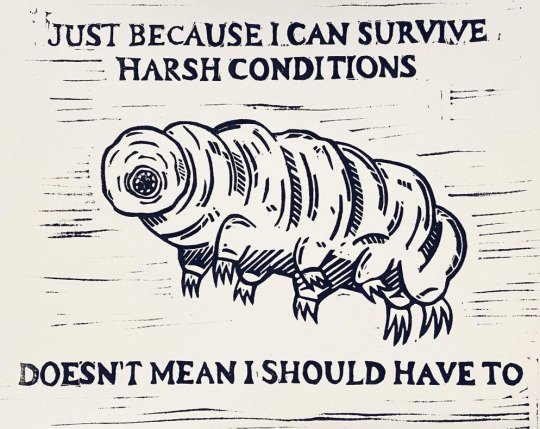Fen-host, he/they A little space for my head mates to share thoughts and be themselves
Last active 60 minutes ago
Don't wanna be here? Send us removal request.
Text
I think there has only been a few times where plurality in media was portrayed decently and like 90% of it was subtle or just has vibes of it.
i mean I'll obviously take that over the ableist shit but yeah.
625 notes
·
View notes
Text
#i sleep with a different plush each night. all animals#sometimes fantasy#like my dragons#sometimes Pochita#from Chainsaw Man#also got Hello Kitty
19K notes
·
View notes
Text
Hmm let's see:
Having DID with:
-Decent internal communication (after six years of working through shit)
-A fuckton of fictives (and fictives who date each other, whaaaa???)
-High alter count (around 200)
-Alotta splits
-Not a single care in the world about system "origins"
-Multiple queer identities
-Multiple queer alters (at least one with neopronouns)
-Comorbidites
Anything I may be missing on their bingo charts? Oh! I guess I plan on dying my hair soon, and apparently that's a sign on faking too for ...some reason?
But seriously, fuck fdc
What are the reasons fakedisordercringe would fakeclaim y'all on their stupid abelist sub I'm curious
167 notes
·
View notes
Text
I feel like it says something that two of the bigger targeted communities on r/fakedisordercringe happen to be the autistic community and the DID community. Autism, a disorder on a spectrum that can present itself very differently in each individual (whilst still following certain structures, of course, or else there would be no way of diagnosing it..), and DID, a highly stigmatized trauma disorder that is still not even believed to exist by a little too many professionals out there, to a point where research into it is still lacking in several departments. Is it possible that in placing rigid ideas on how these two disabilities SHOULD present it's harming those with any slight variations from that? The answer is obviously yes, as so many people formally diagnosed have been victims of this subreddit for stupid reasons like presenting, I don't even know, too positive? Too stereotypical? Too CRINGE? As if we have to be palatable to the neurotypical gaze to be believed (yet also not TOO palatable, cause then we also aren't actually disabled. Can't be too little, can't be too much, there's really no winning!) There's also a point to be made about systems clearly in healing being fakeclaimed. We, for one, have pretty decent communication now, and some control over our switches too. "But that's not how DID works! You can't KNOW! You can't have CONTROL!" But we've worked SO HARD to get to this point! Integration can look fakey because a lot of the unknown clears up and fakeclaimers don't like seeing that, for some reason. It goes back to the being too positive part. If you aren't suffering ALL THE TIME you aren't actually disabled in their eyes. And that's just not true. At all. I could go on about the issues I have with faked disorder cringe. How its rules turn it into a huge echo chamber, how posts and comments can progressively go from fake claiming to just straight ableism and bullying. Or I could include others targeted (such as those with tourettes! though I don't have the lived experiences to make much of an input there). But, maybe I'll save that for another post if I dare come back to it.
4 notes
·
View notes
Text
I'm really exhausted from seeing posts online (Twitter, mostly) about how SA victims should and shouldn't react to, cope with, and express our trauma. If you aren't some pure, innocent, sex-repulsed individual You're doing it wrong. If you write fiction about sexual assault in any way to cope you're doing it wrong. And even if it is okay, you MUST do it the CORRECT WAY or else you're condoning the action. If you're kinky, if you have disturbing sexual fantasies, if you have certain fetishes, you're doing it fucking wrong in some people's eyes. Hell, I've even seen other SA victims follow this idea that there's a "correct way" to be one It's really, really frustrating..
I don't have much else to say on the matter to be honest, just had to get that out somewhere. There is no right or wrong way to be a victim, and the idea that there is has gotta be one of the more harmful beliefs prevalent in the trauma community. If you're one of those with this belief, do better. Seriously.
5 notes
·
View notes
Text
13 Steps for Managing Emotional Flashbacks
1. Say to yourself: “I am having a flashback”. Flashbacks take you into a timeless part of the psyche that feels as helpless, hopeless and surrounded by danger as you were in childhood. The feelings and sensations you are experiencing are past memories that cannot hurt you now.
2. Remind yourself: “I feel afraid but I am not in danger! I am safe now, here in the present.” Remember you are now in the safety of the present, far from the danger of the past.
3. Own your right/need to have boundaries. Remind yourself that you do not have to allow anyone to mistreat you; you are free to leave dangerous situations and protest unfair behavior.
4. Speak reassuringly to the Inner Child. The child needs to know that you love her/him unconditionally– that s/he can come to you for comfort and protection when s/he feels lost and scared.
5. Deconstruct eternity thinking. In childhood, fear and abandonment felt endless – a safer future was unimaginable. Remember this flashback will pass as it always has before.
6. Remind yourself that you are in an adult body with allies, skills and resources to protect you that you never had as a child. [Feeling small and fragile is a sign of a flashback.]
7. Ease back into your body. Fear launches you into “heady” worrying, or numbing and spacing out.
[a] Gently ask your body to Relax: feel each of your major muscle groups and softly encourage them to relax. [Tightened muscles send false danger signals to your brain.]
[b] Breathe deeply and slowly. [Holding your breath also signals danger.]
[c] Slow down: rushing presses your brain’s flight response button.
[d] Find a safe place to unwind and soothe yourself: wrap yourself in a blanket, hold a pillow or a stuffed animal, lie down on your bed or in a closet or in a bath; take a nap.
[e] Feel the fear in your body without reacting to it. Fear is just an energy in your body. It cannot hurt you if you do not run from it.
8. Resist the Inner Critic’s Drasticizing and Catastrophizing.
[a] Use Thought-stopping to halt the critic’s endless exaggerations of danger, and its constant planning to control the uncontrollable. Refuse to shame, hate or abandon yourself. Channel the anger of self- attack into saying “NO” to your critic’s unfair self-criticism.
[b] Use Thought-substitution & Thought-correction to replace negative thinking with a memorized list of your qualities and accomplishments.
9. Allow yourself to grieve. Flashbacks are opportunities to release old, unexpressed feelings of fear, hurt, and abandonment. Validate and soothe your child’s past experience of helplessness and hopelessness. Healthy grieving can turn your tears into self-compassion and your anger into self-protection.
10. Cultivate safe relationships and seek support. Take time alone when you need it, but don’t let shame isolate you. Feeling shame doesn’t mean you are shameful. Educate your intimates about flashbacks and ask them to help you talk and feel your way through them.
11. Learn to identify the types of triggers that lead to flashbacks. Avoid unsafe people, places, activities and triggering mental processes. Practice preventive maintenance with these steps when triggering situations are unavoidable.
12. Figure out what you are flashing back to. Flashbacks are opportunities to discover, validate and heal your wounds from past abuse and abandonment. They also point to your still unmet developmental needs and can provide you with motivation to get them met.
13. Be patient with a slow recovery process. It takes time in the present to become deadrenalized, and considerable time in the future to gradually decrease the intensity, duration and frequency of flashbacks. Real recovery is a gradually progressive process [often two steps forward, one step back], not an attained salvation fantasy. Don’t beat yourself up for having a flashback.
- Pete Walker, Complex PTSD
2K notes
·
View notes
Text
I love Chainsaw Man, a lot. I got into it during a rough eviction, binging the whole manga on my phone. A couple months ago I was in a psych ward that allowed your own books, so I read over and over again the three volumes of CSM I had. One of the things thats hooked me to it tho, is how different characters respond to trauma throughout the series. POTENTIAL SPOILERS BELOW!
I'm thinking mostly the main characters for this, so.
Denji: Repression. It is a huge component to the story of part one and side note of part two that he blocks his trauma out, in part one especially, behind a metaphorical "door." He gets nightmares about it, with Pochita telling him "Don't open it." And it is huge when he finally does, with Makima's guidance. Along with the door, there is a point in part two that may represent more repression, where a devil causes him to have a flashback to the deaths of his loved ones, and to fight back against it he chainsaws a part of his brain to stop it.
Aki: Revenge. Aki's response to his trauma is to seek the devil who caused it in the first place. In spite of the severe dangers involved, and the hopes of his colleague Himeno that he'd quit, he continues on. It isn't until he finds love and family in Denji and Power that he gets "cold feet."
Power: Intimacy. After the "fight" with the darkness devil, Power latches hard onto Denji for comfort. She is scared, and as someone who had probably never experienced trauma before, doesn't know any way else to deal with it. She cuddles him, sleeps with him, allows him to drink her blood, and (in a very pivotal moment for Denji) showers with him.
These are the ones I'll include for now, but there are definitely other characters. (I'm honestly trying to think about how to put words down for Asa. She's a very interesting character with a good amount of trauma herself.)
14 notes
·
View notes
Text
Hey. Check out this scuffed up Minecraft fox I found at Target. He is mine now and his name is Scub.



Also, yes, he is being posed on top of the corpses of the other fox plushies lol.
10 notes
·
View notes
Text
youtube
This song is so fucking cathartic for me...
-Gabriel
3 notes
·
View notes
Text
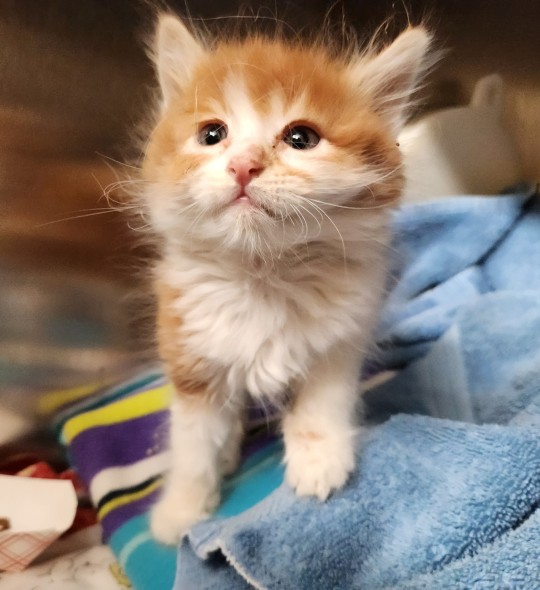
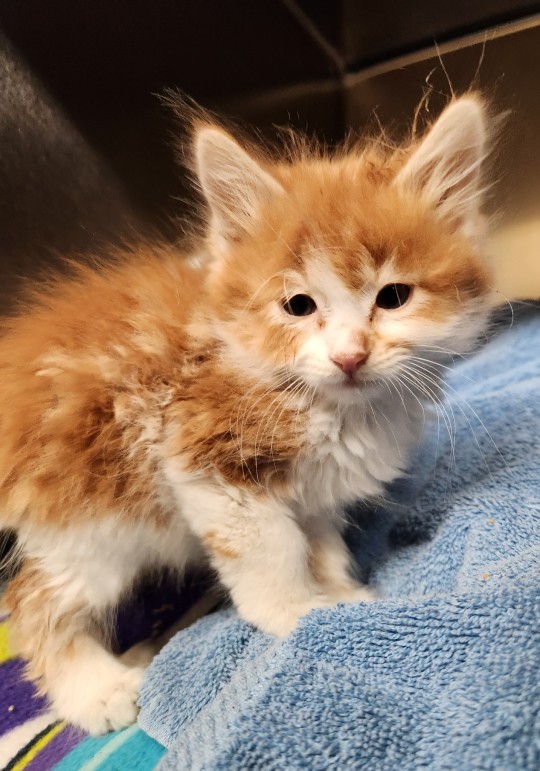
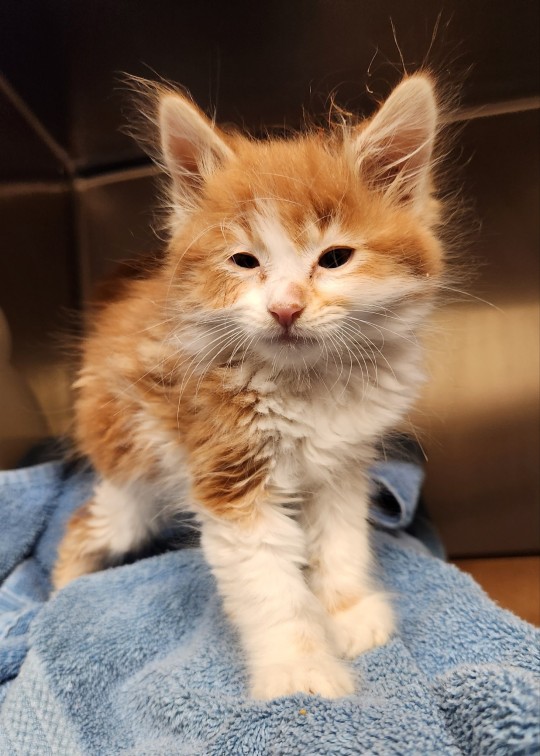
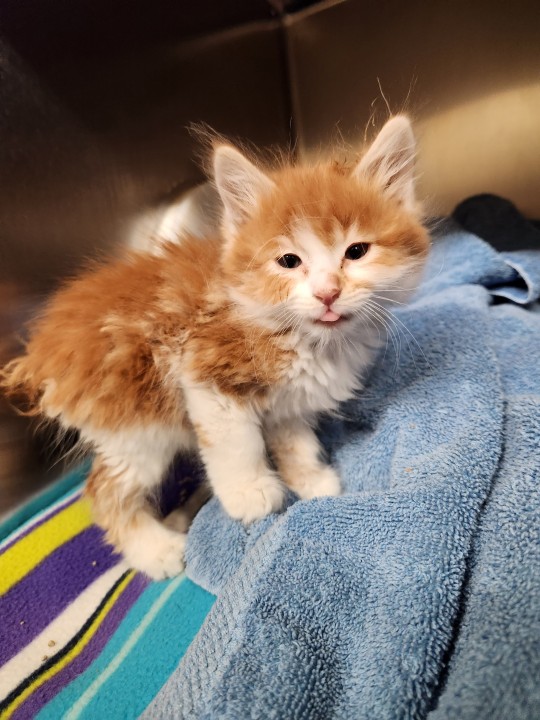
Scrungly old man reincarnated as 7 week old kitten
5K notes
·
View notes
Text
youtube
Oof. This song hits different after processing some shit...
1 note
·
View note
Text
I feel so much tenderness to those of you who are putting the often difficult and harrowing work into working through trauma, identifying and navigating triggers, or even just realizing what you need... that's such a tall task sometimes. It's painful to push down those things, and it's even more painful to address it, but it's so worth it. I genuinely hope you can find pride and peace with the knowledge that you are enough, that whatever happened to you wasn't your fault, and that you are so fucking worth the effort of working through this.
233 notes
·
View notes
Text
I'm mad. I'm mad about my past, I'm mad at my parents who neglected and hurt me, I'm mad at my grandfather for hurting me, I'm mad at my grade school teachers and "friends" and everyone else who ignored my cries for help. And I SHOULD be mad. It was UNFAIR. I was just a kid. Being mad is not a bad thing. It shouldn't be considered a bad thing. So long as I'm not hurting others in my anger I should be allowed to feel mad. Anyone who's been mistreated as a kid, a teen, or even as an adult should be allowed that. It's an important part of getting through it. The pain. The trauma. But not everyone likes that. Some people just want abuse victims to get over it. That's not always possible, or really even possible at all. Feeling emotions for that pain, whether it be sadness, anger, etc. is perfectly normal and should be encouraged. It means progress! Abuse victims NEED to feel these things! So please, if anyone with trauma is feeling anger about what happened to them(or is currently happening to them) and they aren't harming others in that anger, let them feel that way. It's not a bad thing at all.
8 notes
·
View notes
Text
For any kids:
You are not supposed to be afraid of your parents
You never deserve to be hit (not even lightly, not even if you killed someone)
No one has the right to touch you without permission, not even your family members, including your parents
Your parents can love you and still hurt you, that does not make the hurt okay
Adults you trust can still be wrong
It's not normal for everything to always be overwhelming
If you are having a problem with any of these things, do your best to talk to a licensed therapist (if they are licensed therapists they legally cannot tell your parents your personal information)
You deserve happiness
You deserve privacy
You deserve to feel good
You are not alone in your struggles
Your struggles are valid, no matter how small they are
You deserve love and kindness
You deserve to be surrounded by people who love you and care for you
Edit: lots of people are commenting saying that therapists can and do tell parents information about what their child says in therapy, the legality of this depends on your age and what type of information it is. Here is what the American Psychological Association says about it
Discussing confidentially with your therapist beforehand is a good idea so you know how your specific therapist feels, but it's horrible that that's something you have to do. You still deserve privacy as a child.
If you are in a situation where you can't tell your therapist something, please get the information out of yourself somehow. I recommend saying it out loud if you can even if it's just to yourself.
Failing that, write whatever it is down and get rid of the paper so it's unreadable if you have to, it's better than keeping everything inside.
15K notes
·
View notes
Text
Also it demonizes those personality disorders, of which are often a result of severe abuse and trauma. It's not fair to pin every abuser as a narcissist or sociopath. Some people are just abusive assholes. (In addition, not all narcissists or sociopaths are abusive).
Stop trying to clearly distance yourself from abusers by calling them narcissists or sociopaths or psychos. It's time to face the facts and swallow the harsh truth that literally everyone has the potential to do harm - not just a specific subset of mentally ill people.
46K notes
·
View notes
